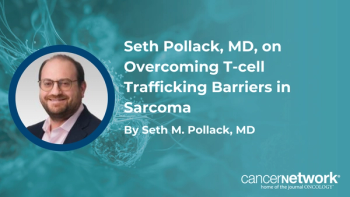
- ONCOLOGY Vol 11 No 5
- Volume 11
- Issue 5
Patients Don't Remember What Their Doctors Tell Them
Mayo Clinic study of patient-physician communication found that patients frequently do not remember what their doctor tells them.
Mayo Clinic study of patient-physician communication found that patientsfrequently do not remember what their doctor tells them.
The study, reported in the December issue of Mayo Clinic Proceedings,focused on the results of general medical examinations given to 566 communitypatients. Researchers collected information from both patients and physiciansabout health problems and cardiac risk factors uncovered in the examinations.They found that patients, surveyed at home after the examination, did notmention 68% of health problems diagnosed by their physician, including54% of their most important diagnosed health problems. Some of the mostfrequently diagnosed health problems not reported by patients included:hypothyroidism, colorectal polyps, obesity, osteoarthritis, and tobaccoabuse.
Study author Dr. Sidna Scheitel believes that the low level of agreementbetween physician and patients is due to a number of factors--misunderstandingof medical terminology used by doctors; "selective listening";and denial of the presence of health issues, such as obesity and tobaccouse. Also, patients and physicians may differ in their perception of theimportance of a health problem.
The survey found that patients who had received a new diagnosis or diagnosisof a major health problem and patients who traveled a considerable distancefor their care were most likely to remember and follow what their doctorhad discussed with them.
Dr. Scheitel says the study suggests that doctors should consider givingproblem lists or summary letters to patients to improve and reinforce thecommunication and management of health problems.
Articles in this issue
almost 29 years ago
AUA Responds to Johansson et al Article on Prostate Cancer Survival Ratesalmost 29 years ago
Scientists Identify Receptor for Papillomavirusalmost 29 years ago
Viramune, New Antiretroviral Agent, Crosses the Blood-Brain Barrieralmost 29 years ago
Summary of the NIH Consensus Development Conference on Cervical Canceralmost 29 years ago
Management of Tumors of the Parapharyngeal SpaceNewsletter
Stay up to date on recent advances in the multidisciplinary approach to cancer.





































